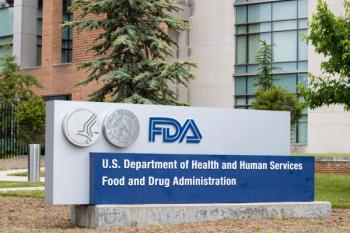
Overcoming Challenges Associated with Biosimilars
Challenges with biosimilars and unbranded biologics are discussed and how can they be improved.
Episodes in this series

Timothy O’Shea, PharmD, MS: In terms of challenges, I think we've come a long way in the eight years that we've had biosimilars on the market. That said, we do still see some challenges. One being is that we need to think about how to get biosimilars to market quicker. So for example, if you look at Amjevita, which was approved in September of 2016, Amjevita didn't actually come to market until earlier this year or January of 2023. So it took about six and a half years from time of approval to market availability. Enbrel is another good example. Enbrel had its first biosimilar approved a month prior in August of 2016, but we don't expect to see Enbrel biosimilars on the market until 2029. A lot of these get caught up with patent litigation issues, settlement agreements. Some of these have made their way through the court system up to the Supreme Court. If you look at, for example, Humira, the manufacturer and their affiliates have submitted over 300 patents on Humira and most of those being after it was first approved in 2002. About half of those were actually approved. These are not just patents for additional or new label expansions. These extend even past that. And the purpose—you've had some executives from pharmaceutical companies come out and say the continued filing of patents is to make it more difficult for biosimilars to follow. These are big revenue drivers for pharmaceutical companies. And so there is an incentive to keep biosimilars away. It's a concept that is sometimes called evergreening, where patents are used—some in the industry would say misused—in order to keep lower cost products from coming to market. So we need to think about balance. We need to think about balancing exclusivity, which is certainly important for pharmaceutical companies to bring new and effective reference products to market. And we need to balance that with reasonableness … to bring lower cost products to market. The other challenge we sometimes see is provider hesitancy. There was a survey recently done of 1200 physicians that found that 77% of physicians that were surveyed were not in favor of allowing pharmacists to freely interchange or substitute a biosimilar. And that was surprising for me to see. We saw those results years ago when we were a little bit earlier in the biosimilar space. But there still is some hesitancy for providers. So we need to think about education. We need to think about what we can do [such as] additional real world studies to show that biosimilars are as safe and as effective as we think they are, and that's actually being seen in the real world setting. Also, when surveyed around top reasons for prescribing biosimilars, only 19% of physicians said one of their top reasons was [the] lower out-of-pocket costs for patients 19%. So we need to [be] making sure the incentives are aligned because we know biosimilars are lower cost products. We want to make sure that patients are seeing the benefit of that. The last challenge that I would mention that that could be hindering uptake of biosimilars is around interchangeability. Only four of the biosimilars that are currently on the market have interchange status and that could be hindering uptake. Recently there was legislation proposed in Congress by Senator Mike Lee that would make it an easier and a more seamless process. It's called the Biosimilar Red Tape Reduction Act. And essentially it would change current regulations to state that all biosimilars upon approval would be deemed interchangeable. That's similar to what they're doing in Europe. And so it's something to keep an eye on. Of course, in the current political landscape, we don't know if that's something that's going to ultimately pass and but there is a lot of support of it in the industry.
Transcript is AI-generated and edited for clarity and readability.
Newsletter
Get the latest industry news, event updates, and more from Managed healthcare Executive.
























